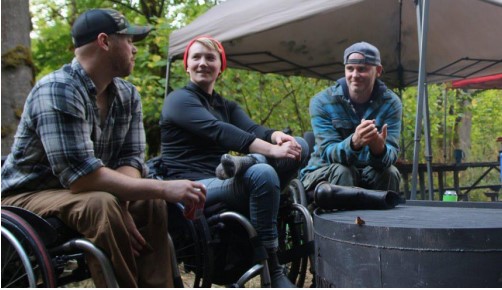A new Americans with Disabilities Act (ADA) Transition Plan guides Oregon Parks and Recreation Department (OPRD) in removing physical barriers to park access over the next 25 years.
Helena Kesch, ADA Coordinator for Oregon Parks & Recreation Department (OPRD) says, “The ADA requires OPRD to self-evaluate state parks and identify barriers to access. The transition plan spells out our timeline for barrier removal. Through this work, and other projects, we’re learning from people with lived experience and from families of people with disabilities that there are additional improvements parks can make to promote universal access. Some of these things are still related to the physical aspects of the park such as limiting gravel in some trail or camping areas, replacing hand driers with ones that have lower decibels, and creating tactile trailhead and interpretive signs. I work directly with park managers on these ideas and others. Ultimately, we’re working on promoting an inclusive environment for all park visitors to enjoy.”
The ADA Transition Plan identifies barriers to parks and park programs for people with disabilities and provides a roadmap for removing them. Identified barriers range from inaccessible picnic areas and restroom facilities to parking lots with limited accessible parking. The plan calls for remediation efforts to begin in July 2021.
“OPRD has already made great strides in providing access for people with disabilities, but there’s much more to be done,” said ADA Coordinator Helen Kesch. “The ADA Transition Plan moves the agency forward in improving parks to people with disabilities can enjoy them to the fullest. This aligns us with the law, and it’s also the right thing to do.”
In the process of creating the plan, OPRD surveyed 273 unique facilities and identified 4,872 individual barriers, then grouped them into categories defined by the level of complexity and cost. The agency posted a draft plan and solicited public comment in January and February, 2021, with options to comment online, by mail, by email or through a virtual hearing.
See full OPRD ADA Transition Plan here.
OPRD’s Accessibility and Inclusion Page.
People may request a printed copy by contacting Kesch – Helena Kesch, OPRD ADA Coordinator, 725 Summer St. NE, Ste. C, Salem, OR 97201, 503-881-4637 or helens.kesch@oregon.gov
TTY: 1-800-551-6949


